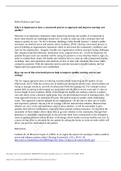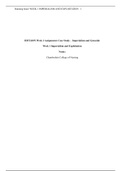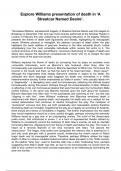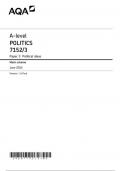Summary
Summary Philosophy unit 2 - the nature and influence of religious experience
- Institution
- PEARSON (PEARSON)
Summary of Philosophy Unit 2 - the nature and influence of religious experience specification notes, including: 2.1 - The Nature of Religious Experience: Context of religious experience across religious traditions, range of dominions related to belief in God and/or ul mate reality, theisti c and...
[Show more]












